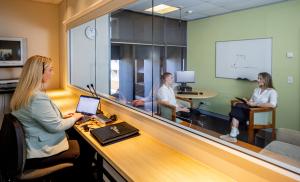The Project Success Lab (PSL) is dedicated to advancing research on the factors influencing project success across industries, with a particular focus on public infrastructure, construction, IT, and healthcare projects. The lab aims to develop evidence-based models and frameworks that help practitioners and policymakers enhance project outcomes. Our research examines key drivers of success, including risk dynamics, leadership, organisational maturity, sustainability, and emerging technologies such as AI. The lab employs a mix of qualitative and quantitative methods, including systems dynamics modelling, empirical studies, and action research, to assess and improve project performance.
Our four main research focuses are:
- Dynamic Systems and Risk in Project Success
Development of a systems dynamics model to evaluate the impact of risks on project success.
Measuring organisational maturity and its influence on project outcomes.
Assessing the effectiveness of government initiatives in project success. - Gender Diversity, Leadership, and Team Performance
Enhancing project success in multicultural teams.
Gender diversity in construction projects and its impact on success.
Leadership competencies and their role in driving project outcomes. - Incorporating Agile project management to support gender diversity in projects.
Sustainability and Innovation in Project Management
Integrating sustainability principles into project management for long-term success.
Project success in aged care facility development.
Leveraging AI in project management to enhance efficiency and decision-making. - Technology-driven resilience and productivity improvement in Project Management
Digital technology infusion in project management for sustained project success.
Rethinking productivity measurement and tracking in project management for enhanced project success
Exploring effective resilience strategies for navigating uncertainties and adverse disruptions in project management
PSL aims to bridge the gap between theory and practice, providing insights that shape future project management methodologies and policies.

